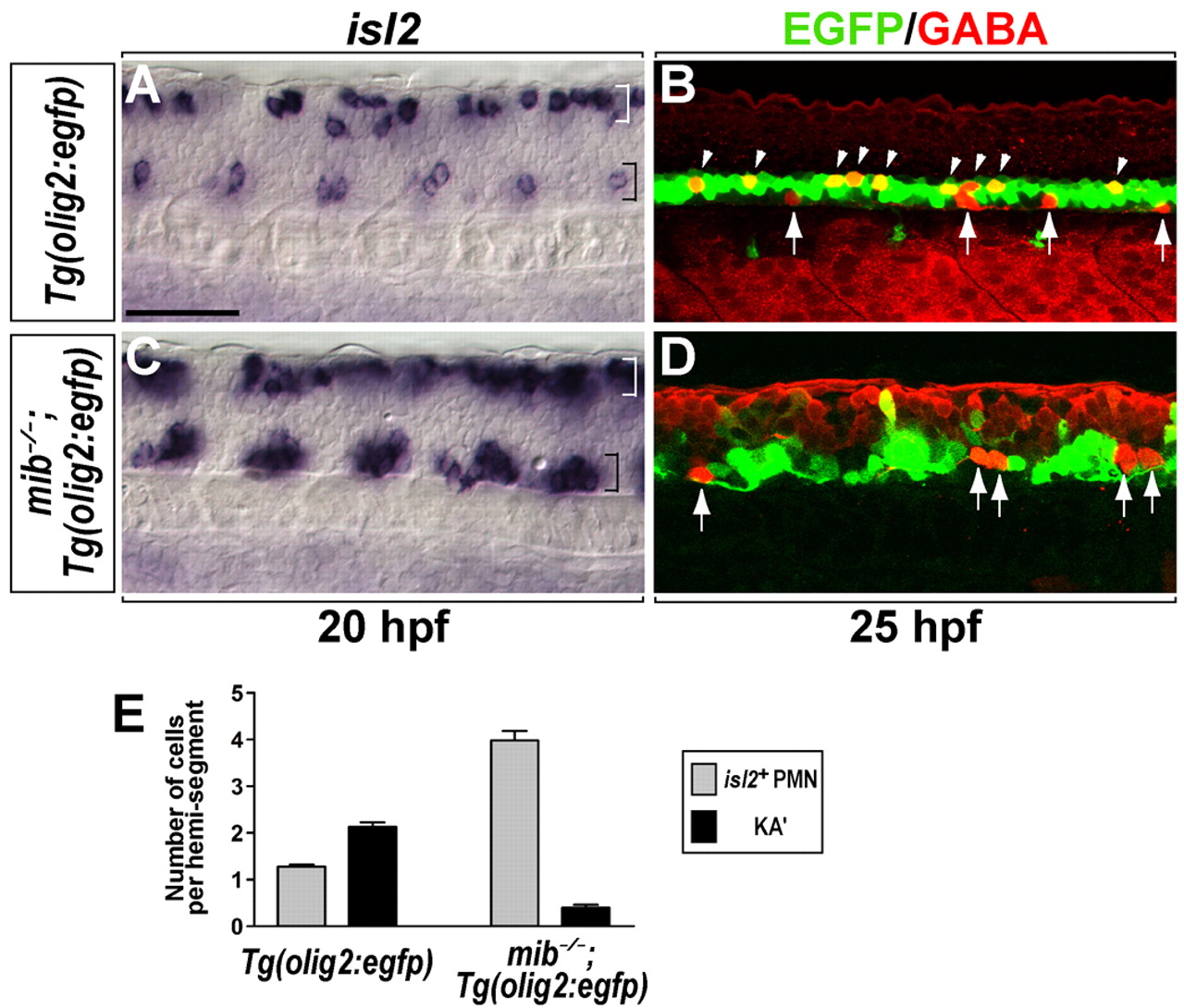Fig. 2 Loss of Notch signaling causes formation of excess PMNs and a deficit of KA' interneurons. (A-D) Lateral views of the spinal cord at the 6- to 12-somite region of zebrafish embryos, with anterior to left and dorsal at the top. (A) A subset of PMNs (CaP and VaP) and Rohon-Beard neurons of Tg(olig2:egfp) embryos expressed isl2 in the ventral spinal cord (black bracket) and dorsal spinal cord (white bracket) at 20 hpf, respectively. (B) In Tg(olig2:egfp) embryos, KA' interneurons (arrowheads) were detected by anti-GABA antibody (red) within EGFP+ cells at 25 hpf. EGFP- GABA+ cells (arrows) in ventral spinal cord are KA'' interneurons (Park et al., 2004). (C) In mib-/-;Tg(olig2:egfp) embryos, isl2+ PMNs formed as clusters in each hemisegment in the ventral spinal cord (black bracket). (D) mib-/-;Tg(olig2:egfp) embryos did not produce EGFP+ GABA+ KA' interneurons, although EGFP- GABA+ KA'' interneurons were still present (arrows). (E) Mean of the number of PMNs (gray bar) and KA' interneurons (black bar) per hemisegment in Tg(olig2:egfp) and mib-/-;Tg(olig2:egfp) embryos (n=7). Error bars represent s.e.m. Scale bar: 50 µm.
Image
Figure Caption
Figure Data
Acknowledgments
This image is the copyrighted work of the attributed author or publisher, and
ZFIN has permission only to display this image to its users.
Additional permissions should be obtained from the applicable author or publisher of the image.
Full text @ Development

